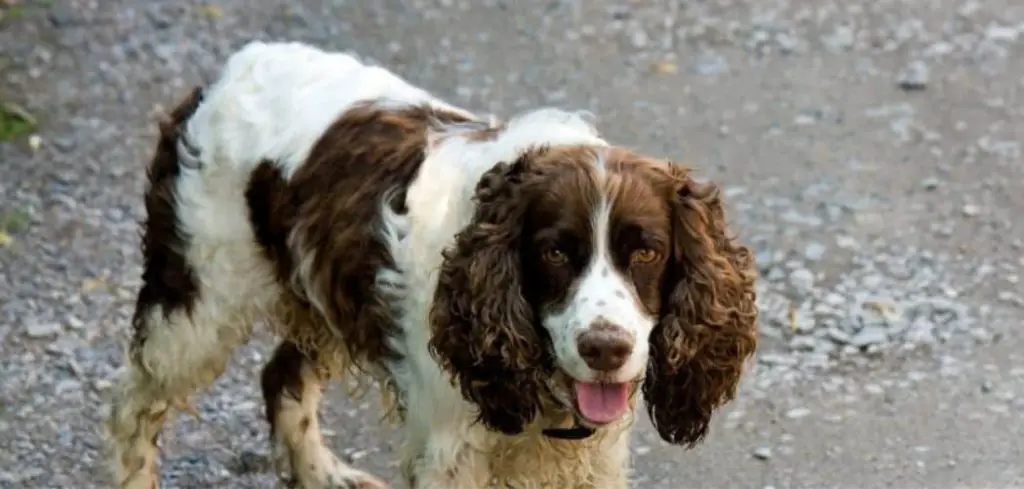When your dog starts panting heavily and choking, it’s hard not to panic. These symptoms can be frightening and often signal distress in your pet. While occasional coughing or panting may be harmless, when they happen together—or appear suddenly—it could point to a serious problem.
We outline the common causes of dog panting and choking, what you can do at home, and when to seek veterinary help.
Why Is My Dog Panting and Choking — Why It Happens
Dogs may pant and choke due to airway obstructions, respiratory infections, heart disease, or exposure to irritants. Panting helps regulate temperature, but when paired with choking, it suggests a breathing issue, physical blockage, or inflammation of the throat.

Common Causes of Dog Panting and Choking
Airway Obstruction
The most urgent cause of panting and choking is a foreign object stuck in the throat or airway.
Dogs that chew toys, bones, or household items may accidentally inhale or swallow something that blocks their windpipe.
This may result in gagging, hacking, or attempts to vomit, often while panting heavily from distress.
This is a veterinary emergency—if your dog can’t breathe properly, immediate intervention is critical.
Collapsing Trachea
Common in small breeds like Pomeranians and Yorkies, a collapsing trachea can cause both chronic panting and episodes of choking.
It’s caused by weakened cartilage in the windpipe, leading to a honking cough and labored breathing during excitement or exercise.
While it’s manageable with medication and lifestyle adjustments, it requires a diagnosis from your vet.
Read more: Dog Panting and Breathing Fast (Causes and what to do)
Kennel Cough or Respiratory Infections
Contagious respiratory illnesses, such as kennel cough, can lead to panting from fever and a persistent choking or hacking cough.
Your dog may sound like they’re choking when trying to clear mucus or deal with throat irritation.
Watch for additional symptoms like nasal discharge, lethargy, or loss of appetite.
Allergies or Environmental Irritants
Inhaled allergens like smoke, dust, cleaning chemicals, or pollen can irritate the throat and lungs.
Your dog might start panting from the stress of restricted breathing and choking or coughing to try to clear the airway.
This may resolve quickly once the irritant is removed but could require vet care for lingering inflammation.
Heart Disease
Dogs with heart conditions may pant excessively due to poor circulation or fluid in the lungs.
Choking or coughing can occur when the heart enlarges and presses against the trachea or as fluid builds up in the chest.
It’s more common in older dogs or breeds predisposed to cardiac issues. If this is suspected, your vet may recommend X-rays, an echocardiogram, or medications.
Heatstroke or Overheating
Dogs that overheat will pant excessively to cool down. If overheating progresses to heatstroke, swelling in the airway or vomiting can mimic choking.
This is an emergency, especially in flat-faced breeds like Bulldogs or Pugs, who struggle to regulate body temperature efficiently.
What to Do If Your Dog Is Panting and Choking
Check for visible obstructions. Only attempt to remove an object if it’s clearly visible and not lodged deep. Do not reach into the throat if you’re unsure.
Keep your dog calm. Panicking will increase panting and worsen breathing distress.
Remove environmental triggers. Turn off air fresheners or move your dog away from smoke or dust.
Record a video. If symptoms are intermittent, recording an episode can help your vet identify the issue.
Seek urgent vet care. If choking is persistent or panting is severe, don’t wait. Go to the vet immediately.
When to Call or Visit Your Vet
Contact your veterinarian if your dog:
Is choking or gagging for more than a minute
Has trouble breathing, with open-mouthed panting
Collapses or shows signs of confusion
Has pale gums or a bluish tongue
Is coughing, gagging, or vomiting alongside panting
Even if the episode resolves, underlying causes like a collapsing trachea or heart disease need medical evaluation.
Read more: Dog Panting and Regurgitating (What it means)
Key Takeaway
Panting and choking together is a red flag symptom that should never be ignored. Whether it’s caused by a minor irritant or a life-threatening blockage, timely intervention can make all the difference.
Observe your dog closely, keep them calm, and call your vet if symptoms persist. Your dog’s breathing should always be quiet, relaxed, and effortless.
With the right diagnosis and care, most dogs recover well—even from scary symptoms like panting and choking.
